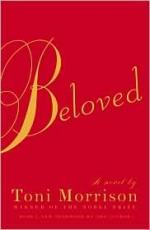|
This section contains 7,566 words (approx. 26 pages at 300 words per page) |

|
SOURCE: "Beloved and the New Apocalypse," in The Journal of Ethnic Studies, Vol. 18, No. 1, Spring, 1990, pp. 59-77.
In the following essay, Bowers analyzes Beloved in the context of the "long tradition of African-American apocalyptic writing."
Toni Morrison's Beloved joins a long tradition of African-American apocalyptic writing. Early African-American writers believed that "America, after periods of overwhelming darkness, would lift the veil and eternal sunshine would prevail" [Addison Gayle, The Way of the World: The Black Novel in America, 1975]. By the Harlem Renaissance, African-American writers had begun to doubt a messianic age, but the middle and late 1960s saw a return to apocalypticism, emphasizing Armageddon. Many of these works by such writers as John Williams and John Oliver Killens conceived "the longed-for racial battle" as "the culmination of history and the revelatory moment of justice and retribution" [A. Robert Lee, ed., Black Fiction: New Studies in the Afro-American Novel...
|
This section contains 7,566 words (approx. 26 pages at 300 words per page) |

|


